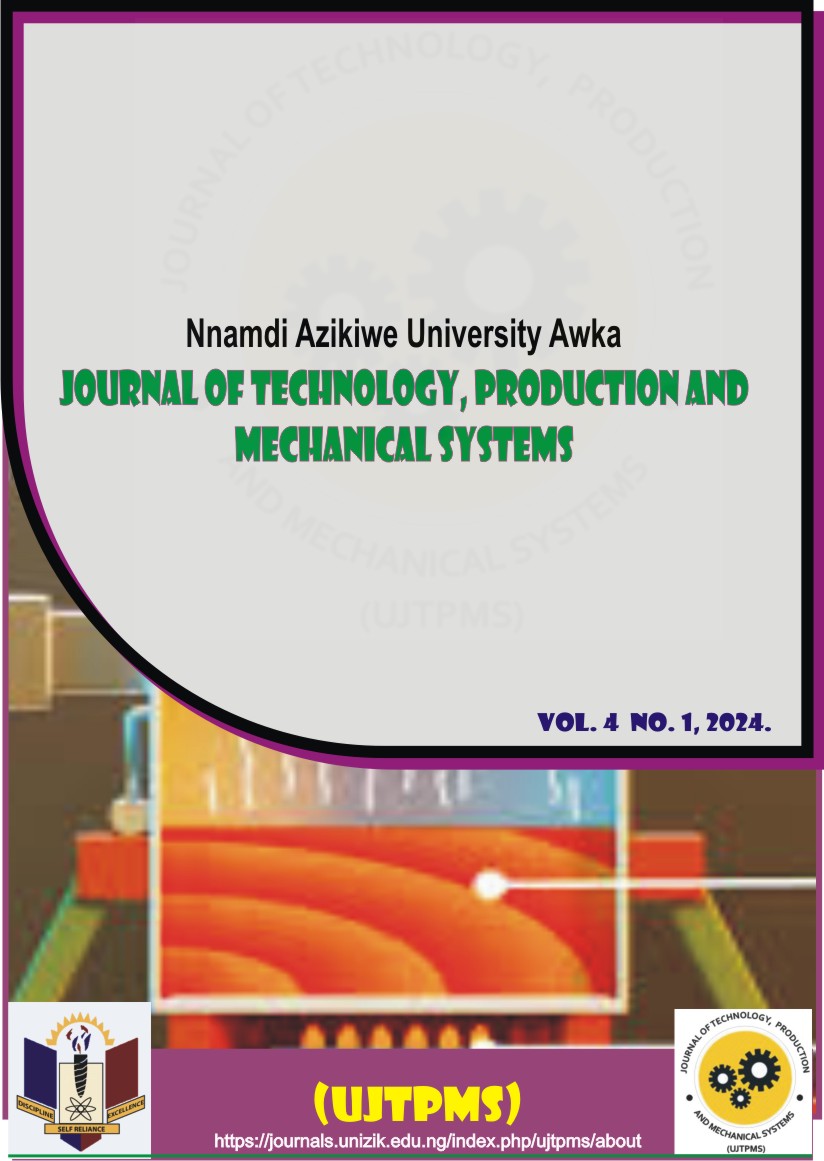Analysis of Thermal and Physical Response of Bio-Composite Reinforced Ceiling Board
Keywords:
Thermal conductivity, Bio-material, Thickness swelling, Water absorption, Density.Abstract
Asbestos used in the production of ceiling board can cause asbestosis, which may lead to cancer. Moreover, environmental concerns have directed attention of researchers to waste recycling and recovering. Wastes are menace to the environment and unfortunately there are abundant wastes with poor disposal systems in third world countries like Nigeria. It is therefore imperative that alternative recovery measures are introduced to curb their adverse effects. Agricultural wastes utilized in this study includes rice and coconut husks as the basic raw materials. The thermal and physical response of bio-composite reinforced ceiling board was analyzed in this study. The aim of this research was to investigate the effectiveness of utilizing sustainable bio-composites as reinforcement materials in building construction. Cement and starch were used as binders and they also assisted in improving the ceiling board strength. A comprehensive set of experiments was conducted to evaluate the thermal and physical properties of the bio-composite reinforced ceiling board. Box Behnken method was employed in the design and development of the test samples. The produced samples were subjected to thermal conductivity, density measurement, thickness swelling and water absorption tests. The results showed density values ranging from 432 – 863 kg/m3, thickness swelling values of 1.32 – 13.99%, thermal conductivity values of 0.024 – 0.036 W/mK and water absorption rate of 3.26 – 32.2%. The density of the produced bio-composite reinforced ceiling board is lower than that of asbestos with density range of 1500 – 1950 kg/m3 though asbestos gave better water absorption rate of 0.5 – 3.0%. It was observed that run D1 with 50% biomass comprising 28 g of coconut husk and 28 g of rice husk gave the optimal response with a thermal conductivity of 0.0024 W/mK, density of 795 kg/m3, thickness swelling of 5.96% and water absorption of 8.77%. The results showed that the bio-composite reinforcement improved the thermal and physical performance of the ceiling board. Additionally, the effects of different bio-composite reinforcement materials on the properties of the board were examined. The results demonstrated that the addition of bio-materials greatly improves the thermal insulation properties of the ceiling board, making it a promising alternative to traditional building materials. Moreover, the study discussed the potential applications of this bio-composite reinforced ceiling board in the construction industry. In conclusion, this study provides important insights into the potential use of bio-composites in building construction and their effect on the thermal and physical performance of building materials.
Downloads
Published
Issue
Section
License
Copyright (c) 2024 Unizik Journal of Technology, Production and Mechanical Systems

This work is licensed under a Creative Commons Attribution-NonCommercial 4.0 International License.






